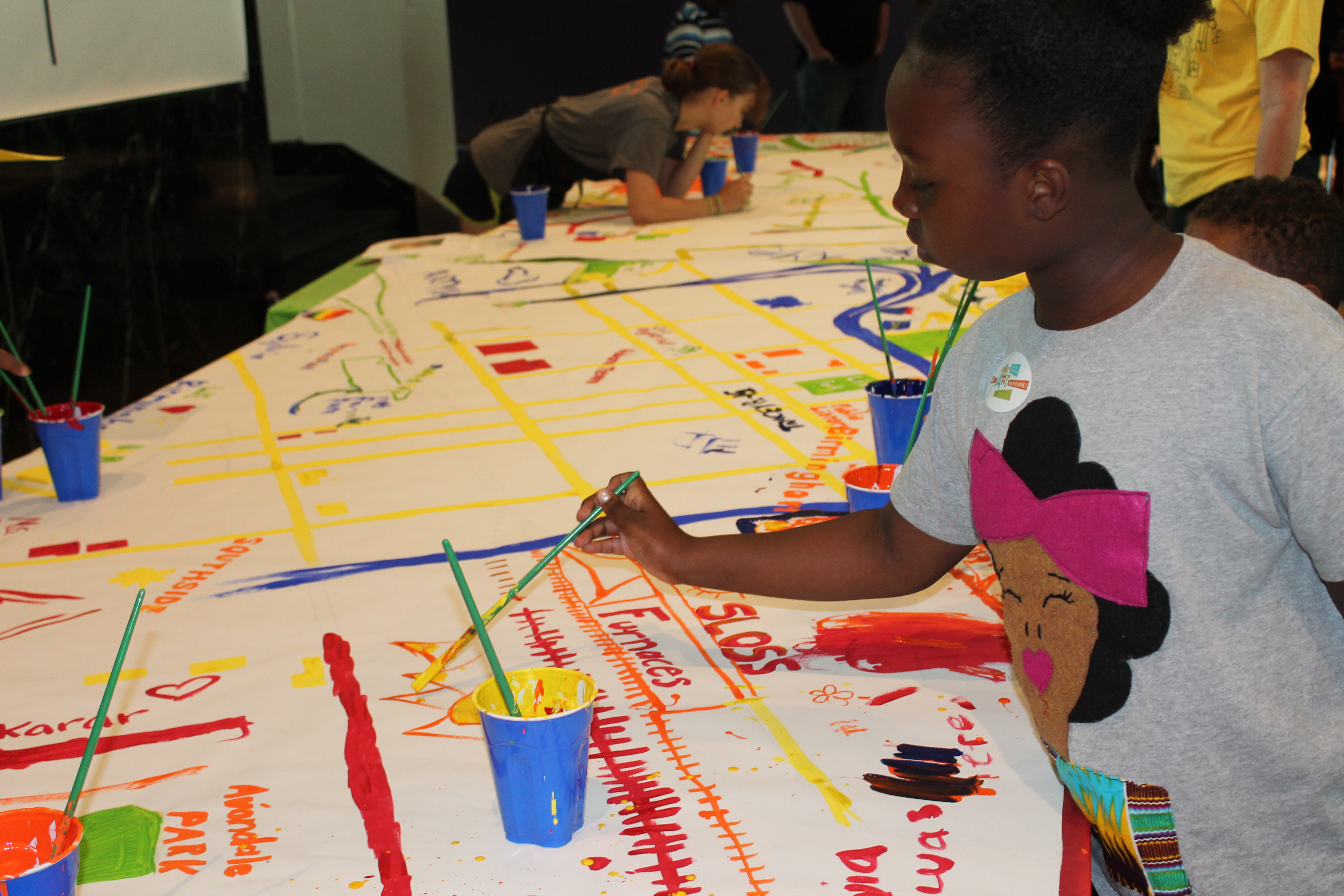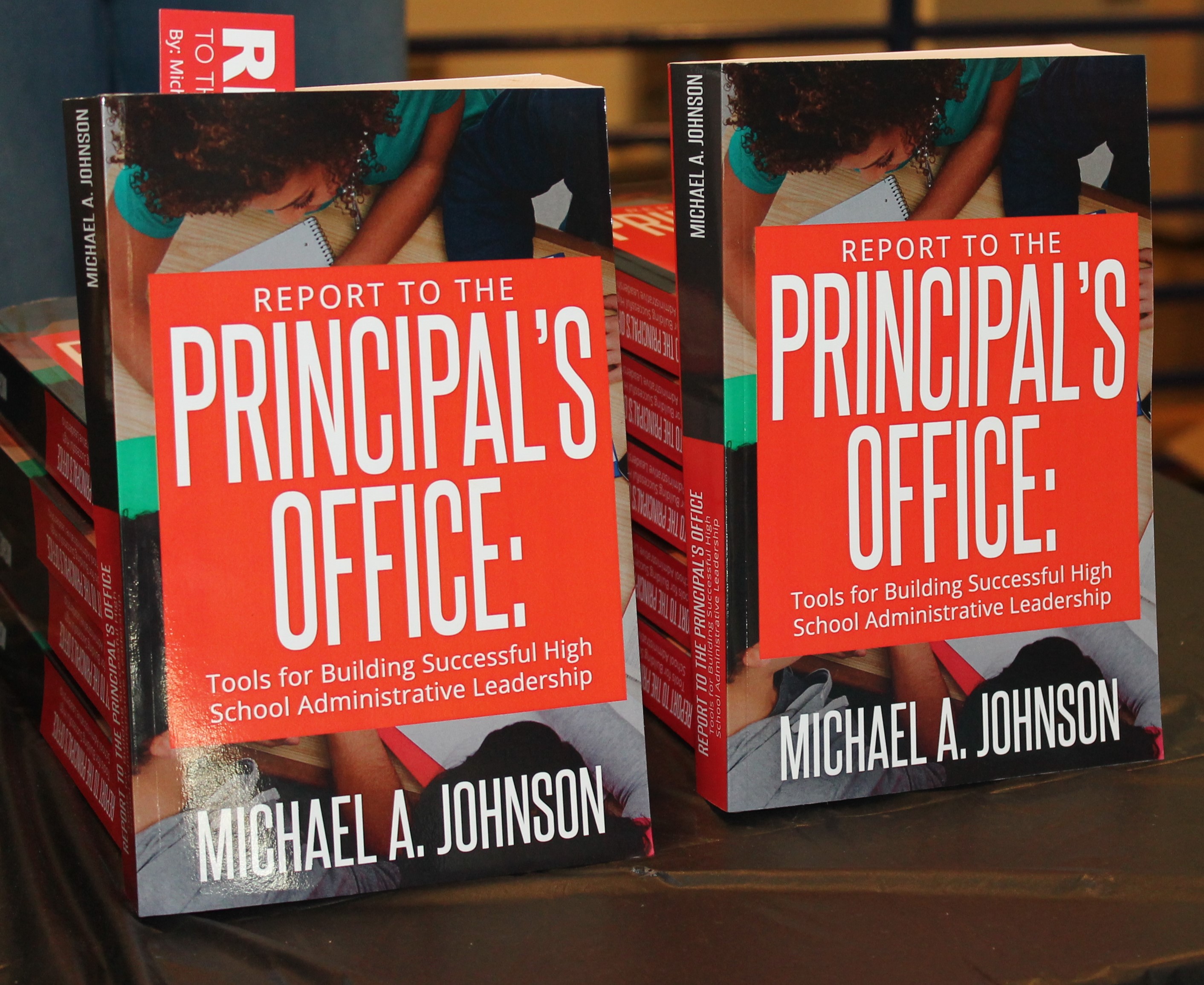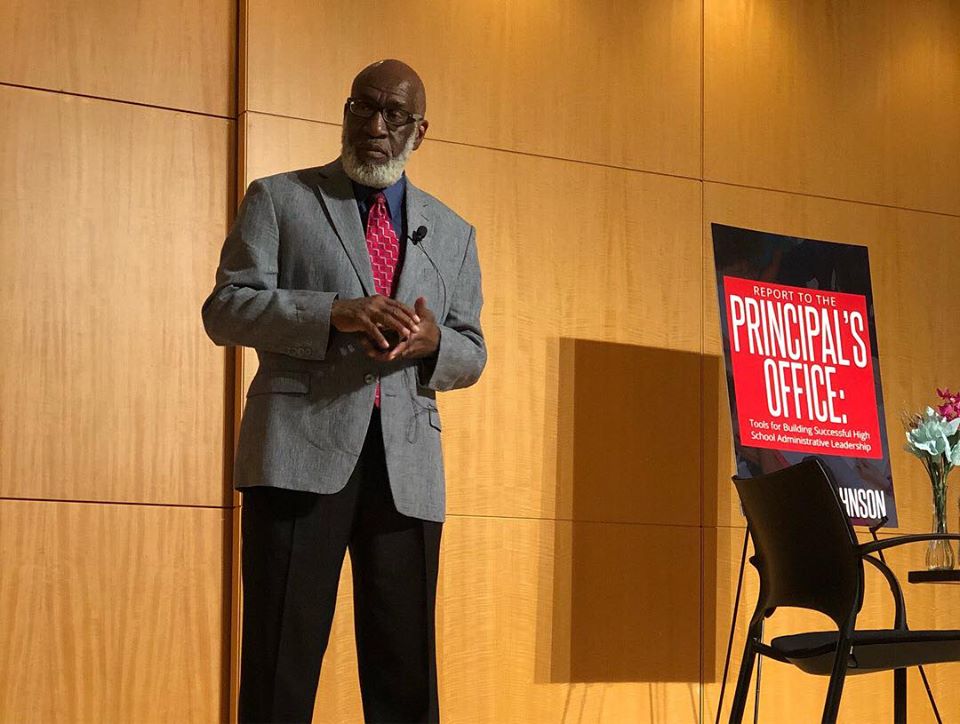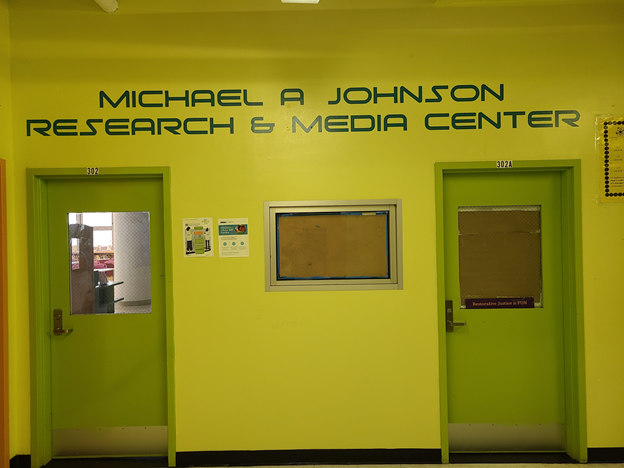Part 1: The Basics
First, don’t panic; for sure, the 2020-2021 school year (SY) will be extremely challenging; but you are not (now or in the future) powerless. And so, let’s put things into perspective. It was not uncommon in my 11 years in the high school principalship to have students arrive to my school from a foreign country (often with limited english language skills), where one or more of their schooling years were interrupted due to war conditions, civil strife or some political crises; interestingly, these students (with our specialized and focused support) ended up being some of the top academically performing students and graduates in the school. This Covid-19 SY is not the optimum situation (and many school districts need to ‘upgrade’ and better think through their school opening plans). Still, it is not uncommon for students to lose significant ‘time’ out of school for many reasons. There are also many operational methods we professional educators have learned over the years that could make up for lost learning time.
Further, millions of US parents presently homeschool their children for most or all of the child’s PreK-12 school life. And based on my official review of their work as a superintendent, in my professional opinion, they do this homeschooling work to a very high level of effectiveness.
And let’s be entirely honest, it’s not like US public schools do such a great job with the disentitled, poor and ‘wrong-zip-coded’ students who do show up to our schools every day for 12-14 years (if they don’t get ‘pushed-out’ sooner)! The truth is that too many public schools and classrooms don’t practice high levels of productive quality learning time for the full or majority of the school’s (class periods, day, week) calendar year. One of the best open secrets of public education is the vast qualitative differences (the real and most profound “achievement gap” — A child’s access to a quality education) between schools. And that ‘gap’ is measured by the different amount of on or above standards-based, highly rigorous instruction and learning time students receive. These quality learning deficits can result in anything from months to years of learning lost time for some unfortunate children, and months to years of learning gain for other fortunately entitled children. As we (justifiably) raise hell over a ‘lost school year time,’ know that for some children in our nation, ‘lost school year time,’ is all of the time or most of every year they spend in school!
Pre-COVID-19 SY, During this Covid-19 SY and in the Post-COVID-19 SY; some things won’t (and should not) change when it comes to parental responsibilities:
• The parental support for the organization of a child’s schoolwork, homework, and study-work is critically important to that child’s chances for academic success! Students need a quiet and consistent time and place for doing regular schoolwork, homework, and study-work. As a principal, I made a home visit to one of my parent’s home who lived in a small apartment with three children. She (as we suggested in the parent orientation) established a daily homework and study period for every child in the house; no TV, music playing, friends visitations, telephoning, etc.; anyone who finished their homework had to study or read a book. She later told me that not just my student but all of her children’s grades improved dramatically! Homework is not study-work; rather, it’s the assignments given to the students by the teacher to reinforce the classwork, a form of teacher assessment to determine to what extent the student has mastered the lesson objectives; or to prepare the student for the next day’s lesson. Now some of my well-meaning liberal colleagues who are members of the ‘no-homework-club’ will come for me on the ‘homework question’; but these are the educators/parents who most-likely can provide rich home-learning experiences for their children; and besides, their children probably also attend schools with highly effective instructional programs, challenging and beyond-the-standards daily academic learning experiences. But be assured, all students are doing some form of school or non-school assigned ‘home-learning-work’; the only question is the type, amount, and quality of the ‘learning-work’ that is being done at home.
• Study-work (studying) is the post-homework activity that the students utilize to self-correct, gain a deeper level of knowledge of topics, skills, and concepts, and acquire a more advanced understanding of the classwork or course work. It is also the best way for a student to strengthen those topics and concept areas of learning where they are ‘weak,’ ‘underperforming,’ or want to excel.

• My experience working with High Performing Students (HPS) over the years is that they engage (often unconsciously) in many standard practices, which then turn into positive and productive habits that predictably leads to their realizing higher levels of academic achievement. In most cases, these principles of ‘good-studentship’ were taught to them by (possibly all) a parent, an older sibling through direct teaching or modeling behaviors, a school teacher, school administrator or guidance counselor. For example, HPS are well-aware of the significant and profound difference between homework and study-work. They are good classroom ‘lesson-note-takers,’ which then turns their notebooks into excellent, well-organized study guides. They know or have been taught how to utilize a textbook or any course-related documents/materials effectively. They somehow quickly figure out the teacher’s “grading policy” (even if a school has a ‘standard’ and official ‘grading policy’; how teachers understand and practice that policy can differ slightly from teacher to teacher); they learn the teacher’s standards, expectations, and the ‘rubrics’ (rules) the teacher uses to define and explain those standards. The same strategies of (and perhaps the reasons they are) good ‘test-takers’; who are able, in a matter of seconds to get ‘into-the-mind’ of the test designer and test-grader, and ask: “Now what am I being asked to do by both the test designer and the person grading the exam?” The answer to those questions is the correct answer to the exam question they are facing. It is not necessary for these students to ‘like’ or ‘be liked’ by the teacher or like any particular teacher’s ‘teaching style’; they are, in so many ways totally not ‘invested’ in the teacher’s personality, and only focused on getting an “A.” They won’t misbehave in class, but they will quickly seek out an administrator if they feel that a teacher is grading them ‘unfairly’; e.g., like this unprofessional silly idea of not giving students a rightfully earned first-marking period “A,” to “motivate the student”! Utilizing a system of ‘rubrics’ (the way to determine how close or far away you are from meeting a standard), they can independently ‘self-grade’ or evaluate (from the teacher’s perspective) any work-product before they turn it into the teacher. The ‘course syllabus’, requirements, exams dates, project, and assignment dates serve as an operational road map for these students, as they plan (with an “A” as the end objective) and organize their approach to work and study. The good news is that just about all of HPS’ skills’ can be taught and cultivated in any student!
• High Performing Students invest a lot of study time in mastering those courses, topics, and concepts for which they are struggling or not in total ‘mastery’ over. Then they move onto those areas for which they are more capable of building on their academic strengths (leaving their ‘strongest academic areas’ for last). These students also engage in a form of “study neutrality-practicality,” meaning spending as much time as required in each subject area and course to get an “A” in every subject and course; they don’t just focus on the classes and subject areas they like or see as part of their future career choice prerequisites. These are the pre-medicine or pre-engineering students who work hard to get “A’s” in English and History; the pre-law or pre-professional artist students who strive to get “A’s” in their Science and Mathematics courses. They do this first to ‘strengthened’ their GPA’s (Grade Point Average) and secondly not to encourage and allow any ‘slackness’ or second-best attitude to enter into their high achievement ‘mind-set’ consciousness. These students want (and will fight for) an “A” in Physical Education (PE) because they are all about the “A’s.”
• Good study habits make and is the difference. The general rule I have observed is that consistent and effective studying beyond homework will make any student: ‘struggling,’ average, or high achieving, into a much better and stronger student!
• Smart, efficacious teachers (often working in Title-1 schools), who are aware that their students don’t know (have not been taught) how to study, and their parents may be willing but unable to help them; will assign functional study exercises ‘disguised’ as homework. Something the ‘no-homework’ crowd fails to appreciate.
• Remember parents, the syllabus or topics covered in a subject area, class or course are ‘finite,’ limited, have an end; which means that students can ‘overcome’ and perform well in any class or course by merely expanding the quality, intensity, and time of their study-work. For many years as a high school principal I have seen students arrive in the ninth grade with vastly different eighth-grade standardized reading and mathematics exams scores, and then watched as those students who scored lower on those 8th-grade exams outperform their peers who scored higher on those same 8th-grade standardized exams, and this was to a great extent due to the use of excellent study habits! An essential quality of good students is that they ‘attack’ (through good study habits) their schoolwork, rather than ‘passively’ let a class or subject area dominate and overwhelm them. Establishing early and consistently practicing good study habits can be the determining factor in the level of a student’s academic success.
• HPS Get Better Organized And Therefore Get Better Grades! For all students, but especially middle & high school students, getting well-organized (early and consistently) is critical. And it is for this reason that they need a yearlong paper and electronic calendar based organizer-planner. Along with an excellent ‘filing’ (paper and electronic) system for all of the documents and numerous ‘papers,’ they will accumulate over a school-year. A separate for each class and subject areas note-taking (that turn into study guides) system. Online lessons could allow students to record or ‘cut and paste’ the written and ‘board-work’ parts of a teacher’s lesson into their class/study notes—and then re-watch and review the teacher’s lesson as many times as necessary. Students in every grade need subject/class specific-separate (color-coded) folders for returned & graded homework, essays, reports, quizzes, tests, assignments, and projects. Lack of organization is one of the significant ‘pitfalls’ for first-year high school students, a ‘fall and pit’ from which many don’t entirely escape. Over the years, whenever I had a meeting with the parent of an underperforming student in the principal’s office, without fail when the parent and I would go through the student’s school-bag and notebooks; we always found an unused or severely underutilized planning-calendar (which I gave to the student at the beginning of the year), a complete ‘mess’ of math, history, foreign language, etc. papers and notes thrown together in the same notebook, several single sheets of (some half torn) papers, returned and graded exams from different classes, homework, essays and book reports (and yes, even some not turned in completed homework!) all mixed up; including some now mangled and out-of-date ‘notes to the parents’ that the parent never received! Getting and Staying Well-Organized is the First Step to Getting Good Grades!
• Parent’s helping to organize the child’s out-of-school time is a major act. The ‘old folks’ said: “Idle hands are the devil’s workshop.” Also correct, is that too much ‘idle’ time, alone, away from school time, can undermine and diminish any good teaching-learning done in school. Fill your child’s after and weekend out-of-school time with academically supportive, fun, character, and discipline-development activities. Again, I probably will get some push-back from the ‘entitled-ones’ who will tell you that your child needs to “chill” from learning. However, these are the same parents who create wonderful opportunities for their children to receive “chilled” productive informal and formal learning experiences outside of the formal school setting. There is no conflict between ‘fun’ and learning. There are a vast number of activities that can be both ‘fun’, enjoyable, and educational. Children are virtually non-stop biological ‘learning-machines,’ which means they learn (from you and the world) as long as they are awake. Learning through fun could be activities like Independent’ reading for pleasure’; many of the online math, reading, science, history, foreign language learning, and problem-solving thinking’ games and puzzles that don’t ‘feel’ like schoolwork. Online or safe-distancing in-person activities such as; scouting, chess, art, dance, acting, martial arts, vocal & instrumental music, hobbies, creative writing, Science, Technology, Engineering, and Mathematics (STEM) books, magazines, kits, programs, and classes. Over the years, I have exposed students to many places and experiences that they initially swore “they did not like”; that is until they did! The category of ‘likes’ for young people is limited to what they know and experience, and therefore the ‘likes’ are flexible and open to adult influence. It is important to get boys connected to a positive male mentor/role model and supportive male peers who honor and seek to do well in school. Turn all of the cable and internet resources in the house into an after-school, weekend, and school break informal education ‘classroom’!
• Let’s keep it real honest; for sure, academic ‘achievement gaps’ (really learning opportunity gaps) will, unfortunately, widened during this Covid-19 SY. Those students who are the most self-disciplined, self-motivated, or have parents who can ‘monitor’ their regular school learning and support a rich out-of-school learning experience (aka ‘Informal education’), will make profound academic progress during this crisis. Thus, the primary reason for any district or school’s ‘reopening’ plans to take into account and respond to the tremendous differences in parent resources (time, money, technology) and access to information.
• During this very challenging school learning year, all parents must be a mentor-guide, coach, and high academic standards champions for their child (If you want a friend, find someone your age!). Young people will necessarily rise to the level of expectations placed on them by the significant adults in their lives. Don’t go Covid-19 SY AWOL (Away Without Oversight and Leadership); just because they hit the ‘independent (not)’ middle & high school years.
Only asking: “How was your schoolwork today?” and receiving the typical adolescent answer: “Fine” or “OK”; is a recipe for academic disaster. Have a real conversation with your child about what is going on with their school life. Be ‘educationally nosey’ especially this year, and especially if your child is not highly motivated and lacks disciplined; sorry, but this is a crisis SY. So I must speak in my: “Let’s not play with words” principal’s voice!
• This school year more than any other, school administrators and teachers may not have the kind of ‘up-close’ and personal, ‘putting-eyes-on’ contact and connections they would like to have with students; things can very quickly slip-through the academic expectations and production net, which could lead to some hard-to-repair academic ‘slip-ups.’ We are in some serious ‘educationally dangerous waters’ (e.g., district/school-wide PreK-12 distance learning during a pandemic); therefore, parents must expand their level of involvement in their child’s education; and be the ‘home-site’—oversight, eyes, and ears of the school.
• All children are different (including children in the same household), so you must carefully allocate your ‘super-vision’ responsibilities. If the school has organized an effective communication and ‘early warning’ link with school administrators and teachers through email, ‘parent-teacher journaling,’ text messages or phone, virtual conferences, and parent meetings, then, by all means, sign-up, join-up and participate! If you are discovering after report cards are issued, or after an exam has been taken that your child is underperforming academically, failing a course-subject area, or engaging in self-destructive online-learning misbehaviors, then that is a severe problem.
• Very Important! The 2020-2021 SY is still a school year (not a vacation year)! Students need to be well-rested (regular school day night’s sleep), eat a good breakfast, and get to physical school or online school on time and fully engaged for the full time. Encourage good ‘learning habits’ in your child, like daily (including weekends) studying, a ‘pride in what you produce’ attitude, and not waiting for the last minute to do homework, class assignments, or projects. Don’t let your child ‘play-to’ and with the many technical and operational gaps and problems that will inevitably occur during this Covid-19 school year. Thus, parents are ‘officially deputized’ as the home-learning Assistant Principals!
• Parent, this year, you are also the ultimate Super-Substitute-Teacher! There should be a daily (Mon-Fri) school period: ex. 9 AM-3 PM (with brakes of course for lunch, art, music, and exercise—heck let them dance!) If for instance an online lesson is technically interrupted or for some reason, the school day is in part or entirely canceled; your child should stay in ‘school-learning-mode’ for the duration of the school day! You can always fall back in an emergency on independent reading; ‘thoughtful’ film watching (e.g., “Stand and Deliver,” “Akeelah and the Bee,” “The Great Debaters,” etc.) followed up by a student-written review/report; journaling and creative writing, art, music, or workbooks. Parents, if you are not at home while the child is ‘attending’ online schooling (or alternate days of schooling); and depending on the level of the child’s age, ability to be self-directed and self-monitoring; then you will need a plan for what should happen if remote classroom learning stops for any reason. If the school does not do it, you may need to leave precise instructions as to what you want your child(ren) to do if, for some reason, the online instructional program is interrupted, or they are home for any reason (alternate days of school) during the school week. Remember, young folks are very good at ‘filling-in’ any gaps you provide by way of not-so-precise directions and instructions; don’t take it personally; that’s what they do! I’ve warned many teachers over the years that if you don’t have a comprehensive “bell-to-bell” lesson plan, I guarantee that the students will put their’ lesson plan’ into action, and their plan’ will most-likely not turn out well for you or them. Online socialization, fun texting, and social phone conversations with friends should not occur during the school day/class time, even if that school day is taking place in your house. If your child has an alternate days of instruction school’ schedule; this does not mean that your child is only learning 2 or 3 days a week (a disaster if that occurs). Learning in or out of school, in part or whole, is a Monday-Friday experience for a least 6-8 hours a day, depending on the individual child, grade level, or age. Some school districts have banned the wearing of ‘pajamas-like-clothing’ during the online school instructional day, and I agree with them. Students should get-up, put on comfortable ‘public’ clothing and go to school in their house and stay in ‘school’ for the entire school day, with a set time each day for lunch and after lunch a return to ‘classwork’ (check the homeschooling parents websites on various social media platforms; they have some excellent do’s and don’ts, practices, and procedures for creating an outstanding student learning environment at home.)
• If the parent or the school is sending the message, even unintentionally, that this is a ‘throw-away’ or ‘half-hearted’ school year, the student will give the 2020-2021 SY half of their interest, or completely throw the SY away! Keep in mind that some parents and students (at all social-economic levels) will turn this Covid-19 SY disadvantage into a long-term learning growth and academic achievement advancement advantage!
• As for me and my house, education will be a priority! My mother always reminded me in those few moments when I happen to forget that: “I don’t care what so and so’s parents are allowing them to do or not do; in this house, you will do what I tell you to do!” This Covid-19 SY is the parental influence and power ‘championship game’, ‘super-bowl,’ show-us-what-you-got, make-it-or-break-it-time, moment! We are in an extreme emergency situation, and it is indeed, what it is, and to the extent possible, quality learning must go on! Parents must step-up, and regardless of the child’s age or grade, not allow this school year to turn into a year of learning lost. A loss of a significant part of or an entire school year would be bad for all students, but horribly devastating for those students who entered this year ‘barely’ meeting the grade/performance level standards, as well as those students who are seriously struggling far below grade level or performance standards levels!
READING, READING, READING IS AN IGNORANCE KILLER; A STRONG AND NECESSARY SKILL FOR DOING WELL IN ALL SUBJECT AREAS!

• Parents, you will be a significant force for determining the quantity and quality of your child’s learning for the 2020-2021 SY. Be honest, you know your child(ren), and so govern them accordingly. Like no other year, the concept of ‘parent as an educational partner’ will be severely put to the test.
• Some people are not going to like what I am about to say, but here goes. For a lot of reasons (I won’t go into), too many middle and high school students in our society don’t understand or fully appreciate that their present public school experience is a life-determining exercise and critical period in their lives. Then there are those fortunate others who (often via their parents) fully ‘get’ that reality! For many children in our nation, a good education is the only thing that stands between them and ‘generational’ poverty. Acquiring a good education could be their single most important act in breaking a cycle of social/economic/emotional pain and disappointment. These children, many of whom live in a nation where they don’t matter to the political or social society, can’t afford to lose any part of an entire school-year of learning. It’s not about participating in cookie, plants, or candy sales; or serving on symbolic ‘parent-engagement’ committees, this year is about the real parent participation/involvement ‘piece’ that highly effective parents’ get, and most importantly it’s what they get right!
• Effective Parenting does not take ‘having a lot of money,’ a college education, or even the ability to speak English, although all of those advantages don’t hurt. My mother did not step onto a college campus except to attend a graduation. However, her ‘mother-wit’ told her that this thing called ‘education’ was the #1 key to providing her children with the best opportunity to become positive and productive human beings. Know parents, it is not always the child’s ‘natural ability’ that will determine their ultimate academic performance level or career destination (there are a lot of very intellectually gifted and talented human beings sitting in prison); instead, it is very often the determination and focused will of the parents that will ‘lovingly-push’ a child to reach their best capability selves, as they guide them through, around and over the many distracting and destructive barriers of life.
• Don’t be “tricked” or deceived! I have spoken to several teachers around the nation, who have informed me that the students who ‘clowned’ last year during the pre-COVID-19 school days; are now ‘clowning’ with their present online classes. There was one case of a student not being able to ‘log in’ to the class; and then when the teacher contacted the parents to inform them that this student was very ‘tech-savvy’ and maintained an elaborate presence on multiple social media platforms, the next day he could suddenly log-in to class! Do children have rights? Yes, they do; but ‘acting-a-fool,’ destroying themselves or their future, are not parts of those rights! Stop enabling failure, the ‘just doing enough to get by’ attitude, weak excuses, and poor academic performances. They’ll thank you later, or maybe they won’t, in any event…
• Make it ‘OK’ for your child to be smart, want to learn a lot, and get high grades. During this Covid-19 SY boys especially, must be monitored very carefully. Are they putting forth their best efforts (personal capability best)? Are they surrendering to negative peer-pressure by only doing the ‘required’ minimum, or engaging in ‘dumbing-down’ actions? Contrary to popular belief, ‘Smartness’ is not a fixed condition and can be grown.

• This year it will be the parents who will be taking the ‘standardized exam’! This Covid-19 SY is the ‘standardized testing’ period for assessing your effective parenting skills. My great fear, based on countless observations of ‘normal’ school years. Is that like so many children in our nation’s public schools, we will find that there are a lot of parents who lack essential information, have not been adequately prepared, or lack the financial, materials, equipment, or available time resources, to successfully pass the “Covid-19 SY Effective Parent Involvement Exam”. This parental access to information and resources problems should be a major priority action-item for districts and schools reopening plans.

• With every challenging situation, there are always good solutions waiting to emerge! This Covid-19 SY is full of many existing and potentially difficult issues for educators and students. On the other hand, there will be some great opportunities for many different groups of students. The students who ‘like-learning’ are ‘grade-level-readers,’ self-starters, highly-motivated, very-disciplined, goal-focused, and school-success orientated thrive in any learning situation that requires independent and ‘reduced’ supervision actions. And remember those previously mentioned “High Performing Students”? These are also the students who are most likely to hate (so they often let me know as a principal) ‘group work,’ so working alone could be a ‘labor of love’ for them or any student who works better independently. Many students also, let me say (and I hesitate to use the term “anti-social” because of the negative meaning that phrase has taken on) are not ‘thrilled’ to be in a classroom with 20-33 other students; they will be overjoyed to work from home (on the other end-of-the-scale there are those students who are ‘hyper-social-interactors,’ who will find this school year very difficult and perhaps a little sad, and so parents you may need to think about that). A lot of students’ hate’ group work and prefer to work independently because perhaps in their perception it frustratingly ‘slows-them-up’; or, (and this is my interpretation, not theirs) because it hinders or interferes with their creativity, ‘quirkiness’ or inclined preferred learning and ‘intelligence’ style. Also, some students want to have total and singular control over their GPA and learning destiny. Therefore they resist anything that limits their power to shape their own educational experience and potential for achievement. And then there are those students (often with the help of their parents) who will find any and every possible positive value that is to be found in this 2020-2021 ‘modified’ online learning school year. I have learned from supervising school-building administrators; that there are just some people, who either through personality or training, are better at ‘working-through’ a crisis. This ‘effective crisis response’ attitude will also be true for some parents and students during this challenging COVID-19 school year. For those types of students, and there are many of them (high and medium performing) throughout every school system, this ‘independent’ online homeschooling opportunity is a beautiful gift for which they will embrace and take full academic advantage.
• For many other students, the classroom environment, no matter how well-managed by the teacher, can be ‘distracting,’ and in those classrooms that are less well-managed, that distraction can result in a destructive loss of learning for the students in such a class. Online home instruction could very well help these easily distracted students to thrive academically. Further, regardless of the school’s performance profile, the overwhelming vast majority of students come to that school every day to learn; they are at worst potential followers (not initiators or leaders) of a small number of lesson distracting “class-clowns” or “lesson-interrupters” (what I call the: “off-task-behavioralist”). Independent online learning could help a lot of easily distracted or students who like to distract or ‘derail’ the lesson, to learn better and more of what is being taught, particularly in those schools and classrooms that are “student disciplined challenged”.
• And then there are the students who attend schools where the administrators and staffs carry (conscious or unconscious) thoughts of low expectations and ‘dismissiveness’ of their student’s human worth and potential; or, those schools that distort, diminish, or destroy the culture and history of certain groups of students. What better opportunity than this 2020-2021 school year for these children to receive high levels of self-affirming and powerful self-esteem building instruction and ‘training’ (from a parent, grandparent, uncle, cousin, retired educator or family, neighborhood or online/book professional, etc.); and importantly these students could greatly benefit from the most-likely persons to have high hopes and expectations for their future—their parents, faith-based community and neighbors now being able to monitor, support and supplement their school learning!
• Indeed, online learning could help many students in our nation better learn and improve their academic performance (another reason not to rush them and adult educators into a poorly organized human pandemic experiment). A lesson I learned from my experience designing/leading Phelps ACE high school in Washington, DC; is that students taking online Microsoft and CISCO certification courses; as well as for those students participating on a Cyberforensics team, was that these students were judged on the content of their knowledge and the quality of their performance; not on how they look, their hair, their religion, their neighborhood, or the economic status of their parents. This fair and unbiased approach is essentially what should happen in a ‘prejudice-free’ public educational system.
• The Terrible Acceptable Abnormality of ‘Normal’ School Years. Let us not forget, even during this educational crisis, that far too many children in this nation, who under ‘normal school conditions’ face a daily crisis of poor learning options and opportunities. These districts and schools fail terribly in their efficacy and adequacy to properly educate most of the children in those schools. This terrible pandemic season could, for many communities, be a ‘wake-up’ call of acknowledging that whether in ‘good times’ or ‘bad times,’ some children in our society never experience ‘good learning times’ (like how the Covid-19 disease hits some communities harder than others).
This COVID-19 2020-2021 SY could be the ushering in of a real and valuable ‘educational-reconstruction’ period where communities that have not been served well by the public education systems start to think seriously about taking their children’s educational destiny into their own hands.
• The only real and meaningful promise of parenting is sacrifice. Over the years, I have talked to many Black homeschooling parents. Yes, the lack of quality and rigor of the public school’s academic work was an important motivational factor in their decision to homeschool. But also important was their child not having the opportunity to be in a humanity-confirming, culturally-affirming and high-expectations committed school learning environment, that pushed many homeschoolers to take that bold leap into homeschooling. Some of the homeschooling parents I’ve met gave up cherished professional careers or have chosen to live on a one-parent-salary income, simply because they believed that it was important that their Black child(ren) should matter educationally.
I will more fully explain the ‘winning-parental-strategy’ for a student to realize a successful high school COVID-19 2020-2021 SY experience in Part 2.

Michael A. Johnson has served as a teacher, principal, and a school district superintendent. He also served as an adjunct professor of Science Education in the School of Education at St. John’s University. He is the author of a book on school leadership: Report to the Principal’s Office: Tools for Building Successful High School Administrative Leadership (https://majmuse.net/report-to-the-principlas-office-tools-for-building-successful-administrative-leadership/ ).








